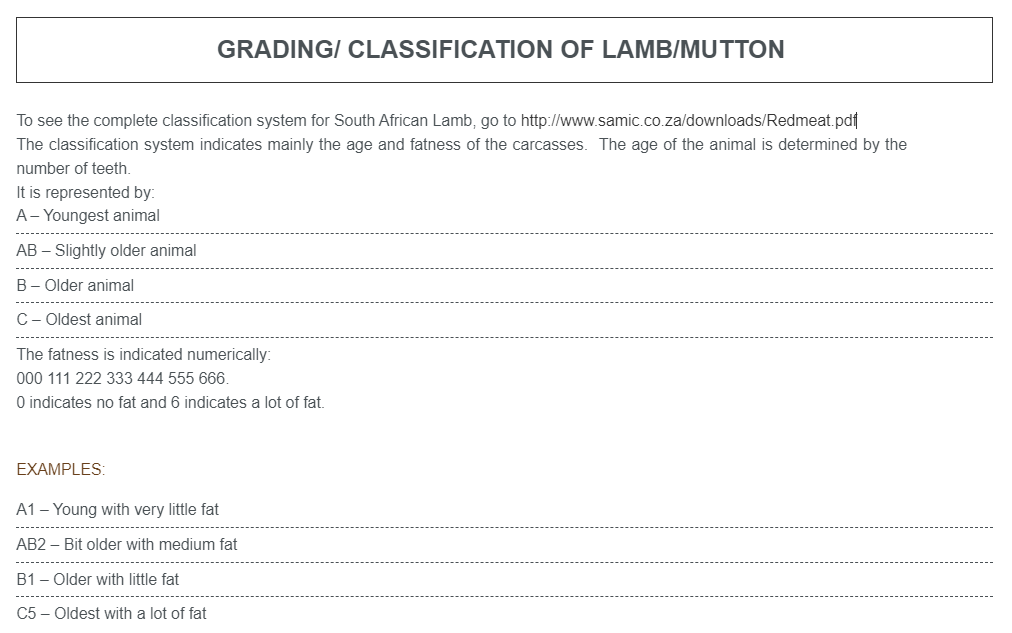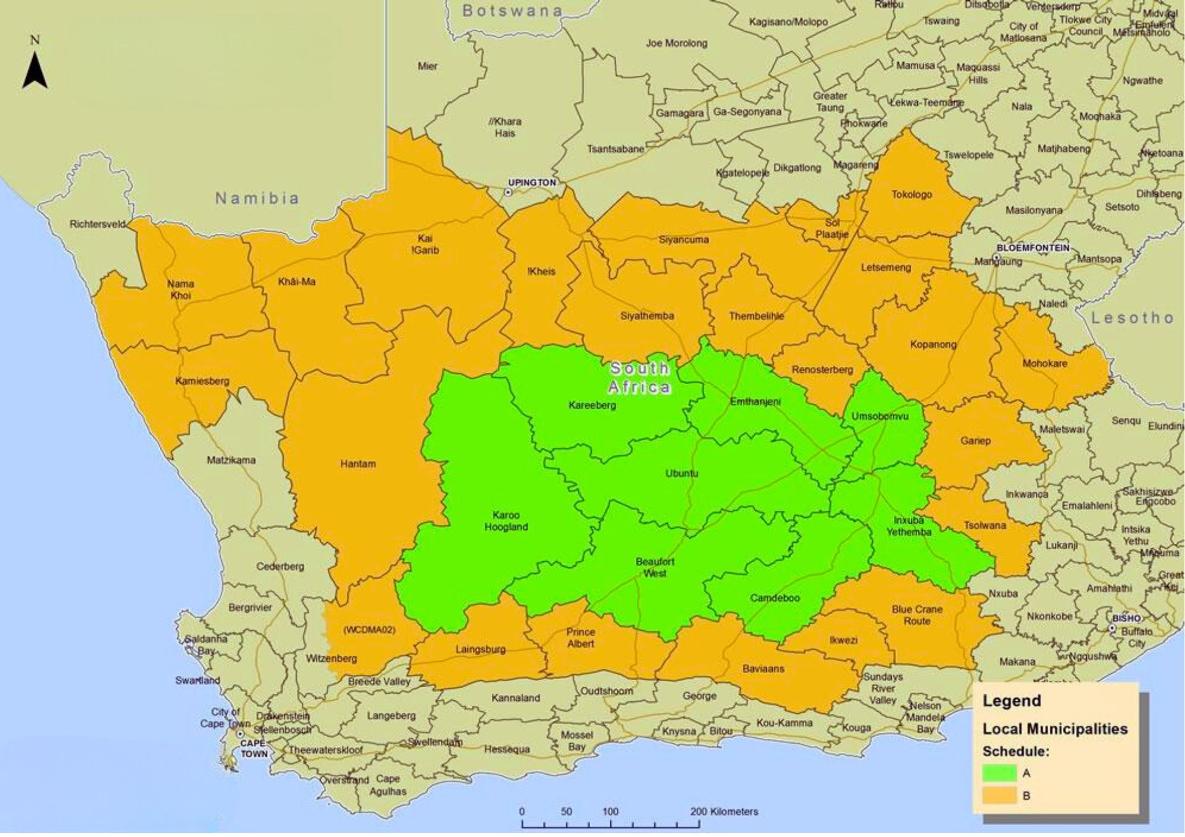FREQUENTLY ASKED QUESTIONS
Yes, that is indeed possible as long as your farm is certified, you have slaughtered the animal at a certified abattoir and processed and packed the product at a certified packer/processor. For more details, click here to read about the Procedure for the Private Slaughtering of Certified Karoo Meat of Origin (KMOO) Animals at the Abattoir
- Click here to download and read the scientific report on "Sensory profiles of mutton from different regions in South Africa" which illustrates the link between Karoo vegetation and the taste of Karoo Lamb.
- Click here to download and read the scientific report on "Proton-transfer reaction mass spectrometry (PTR-MS) for the authentication of regionally unique South African lamb".
The name “Karoo” has been abused and misappropriated by many businesses not based in the Karoo. At the same time many people have sold lamb as Karoo Lamb when t has not grazed on the Karoo bossieveld. Feedlots and farms of with planted pastures in the Karoo cannot claim their product is from the Karoo since it is not form the natural Karoo veld. The certification mark is a way to restore integrity and to guarantee that you are buying true Karoo meat.
The certification process and detail audits make sure that all role players in the chain can make the following claims:
-
Free Range
-
No added hormones (including growth hormones)
-
No routine antibiotics
-
From the Karoo
The whole chain is audited to ensure full traceability, conformance to food safety and legal requirements
requirements of the new legislation on food labeling?
Yes, Karoo Meat of Origin standards are all encompassing and the intention is to comply with all South African legislation and regulations. There are different standards for farmers, abattoirs, packer/processor, restaurants, etc. to ensure compliance throughout the chain.
The Department of Agriculture, Forestry and Fisheries (DAFF) is responsible for the administration of the Agricultural Product Standards Act, 1990 (APS Act). Certain packing and marking requirements are addressed, as it impacts on the presentation of the product to the consumer.
There are classification regulations for meat published in terms of the APS Act (Regulations regarding the classification and marking of meat intended for sale in the Republic of South Africa – Government Notice No. R. 863 of 1 September 2006). These regulations involve the classification and roller-marking of beef, mutton and pork carcasses. In terms of these regulations no quality mark, other than those classification marks prescribed by the regulations, may be indicated on a carcass or the meat coming from a carcass (So it is prohibited to indicate any quality mark on meat – i.e. a mark that may influence the choice of the consumer).
The meat regulations specifically make mention of a number of restrictions:
23. (1) No mark, roller-mark or other method of expression that directly or by implication constitutes a misrepresentation shall be marked on a carcass, container or outer container of meat;
(2) The words “super”, “prime”, “prima”, “top”, “choice”, “keur”, “quality”, “kwaliteit”, “extra”, “ekstra” or “ultra” or any other word or expression which directly or by implication creates or may create the impression that meat or a carcass is of a special or particular quality other than a characteristic referred to in these regulations, may not be marked on the container of meat or stamped on a carcass.
However, there is allowance made for quality marks (“Trade Marks”) for red meat such as “Karoo lamb” . The “Karoo Meat of Origin” quality mark was “registered” with the Department and is used on the carcasses and the meat coming from the carcasses. Karoo Meat of Origin applied to make use of the “Karoo Meat of Origin” quality mark through supplying the Department with a KMOO protocol. The KMOO protocol is now audited by SAMIC (SA Meat Industry Company, the assignee of the Department) to ensure that Karoo Meat of Origin – and everybody in the chain using the meat – complies with the standard.
The Karoo Development Foundation was established in early 2009 as an inter vivos trust (nr IT1498/2009) in terms of Section 6 (1) of the Trust Property Control Act (Act 57 of 1988).
The objective of the Foundation is to act as a custodian of the intellectual property rights that vest in the name “Karoo” and to work towards ensuring that the benefits that flow from commercialization of the Karoo heritage benefit communities within the region.

